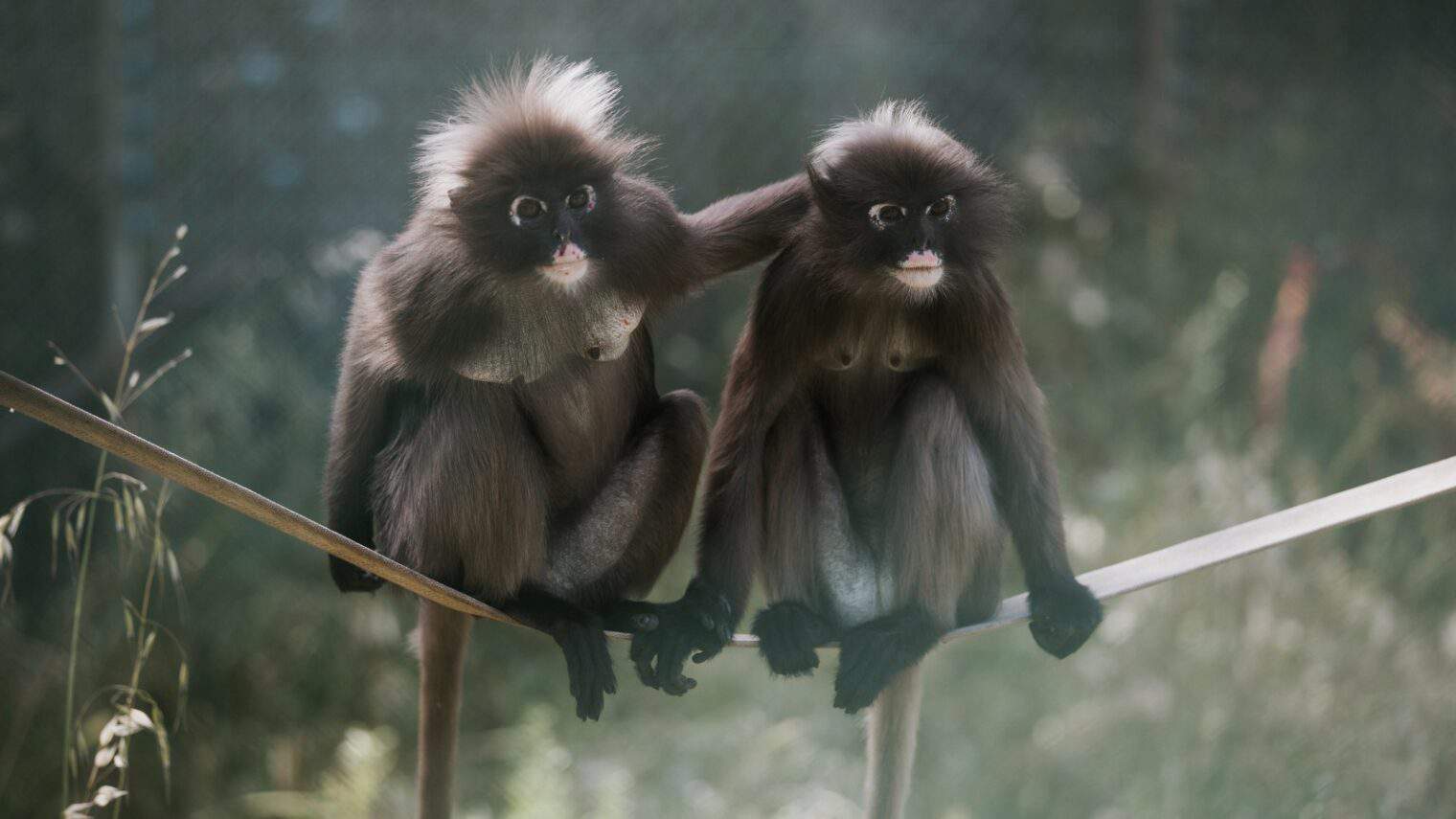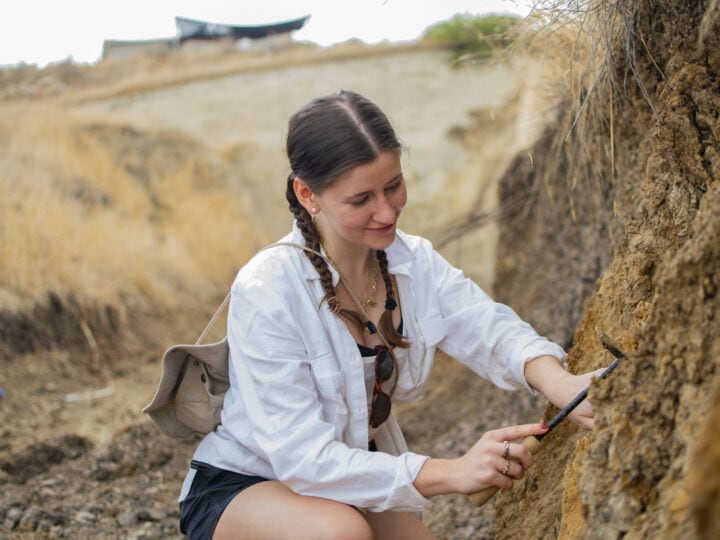Three girls, rescued recently from a long captivity, have found a forever home in central Israel.
Beelby, Bamba and Billie are baboons that had spent decades living in too-close quarters on a cement floor in a kibbutz petting zoo.
Tamar Fredman, the clinical psychologist and primatologist who founded and runs the nonprofit Israel Primate Sanctuary in Kfar Daniel, calls them “girls” even though one is 30 years old and the others at least 20.
“When we started the sanctuary 27 years ago, one of the incentives was a survey I did showing there were 140 petting zoos on Israeli kibbutzim that had monkeys they would breed and sell to other petting zoos or to the black market,” Fredman tells ISRAEL21c.
Lacking resources to rescue and shelter them all, she took monkeys out of the worst of these zoos and housed them in the sanctuary.
Caregivers at the 80-dunam (20-acre) facility give primates psychological, social and physical rehabilitation under the supervision of a dedicated veterinarian and Fredman, who specializes in social learning and behavior.
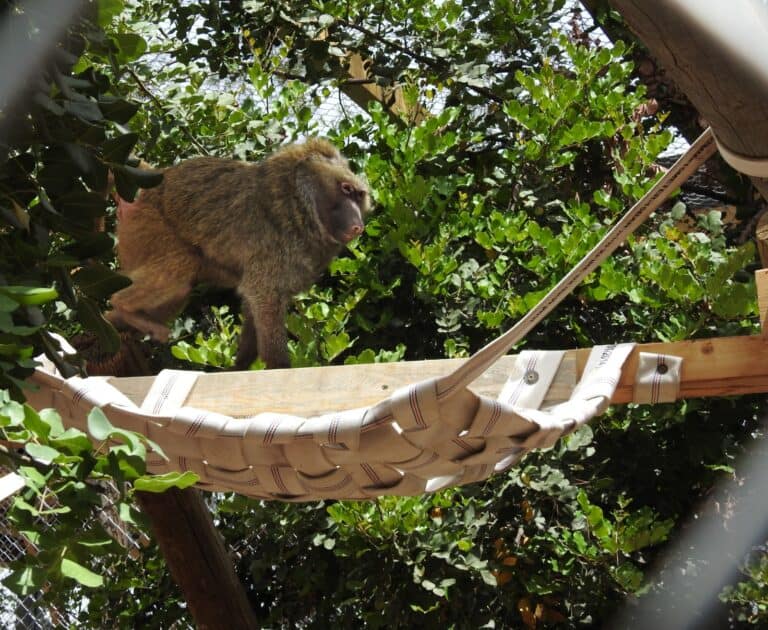
At the same time, Fredman persuaded each petting zoo to stop its breeding program to prevent the birth of 60 new babies every year.
“Then we worked to change regulations, because even though the law has prohibited keeping primates as pets since 1991, if a monkey was confiscated they’d give it to a friend on a kibbutz and that made these petting zoos bigger and bigger,” Fredman explains. “Now you cannot open a petting zoo with monkeys.”
Over the years, the sanctuary grew to house 850 primates of 20 different species. In addition to those from petting zoos, some are retired or rescued from biomedical research, from the exotic pet trade in Israel, and from the black market in Jordan in cooperation with Four Paws International.
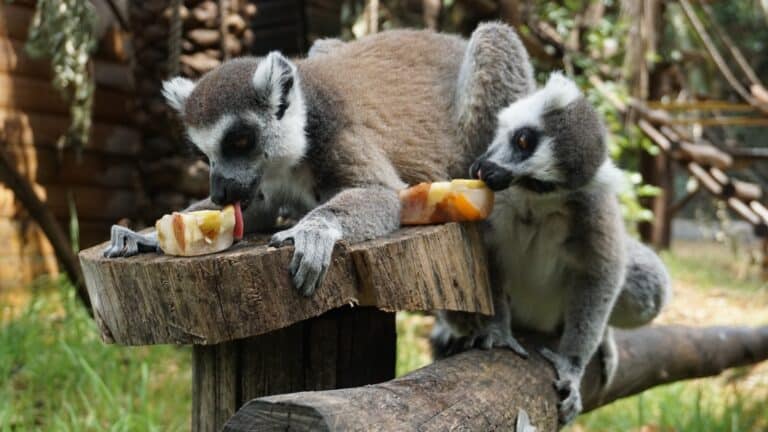
When only 10 baboons were left in petting zoos, Fredman had to decide if it was best to leave them where they’ve lived most of their lives.
“With these three girls, the situation was such that we could not allow them to stay there and we brought them to our sanctuary with the consent of the petting zoo,” says Fredman, who works closely with the Ministry of Agriculture and the Israel Nature and Parks Authority, which is responsible for wild animals in captivity.

Grass under their feet
The zoo manager had told Fredman that the two younger baboons were very aggressive toward the older one. This behavior has disappeared now that the girls have more space, mental stimulation and grass under their feet.
“The first thing that changed their life is that they are not on a cement floor anymore after 20-something years. They can roam around on the ground searching for things we hide for them. It’s a very big change for them,” says Fredman.
Social integration is next.
“We hope to introduce them to a male we rescued from Gaza. He’s been by himself and it would be better for him and for them if they can be together. We are also seeing which other baboons would be good for them to socialize with in the open area,” says Fredman.
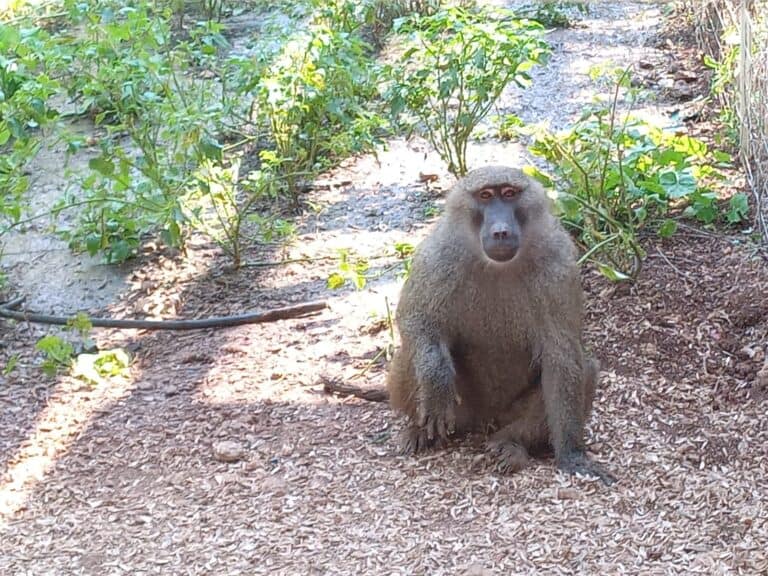
Monkeys from Mauritius
The sanctuary is divided into 22 sections. The largest is designated for 650 macaques rescued from BFC Farm in central Israel 10 years ago.
The owners of BFC hunted these monkeys in Mauritius, kept them in small cement cages, bred them and sold the babies to research labs around the world.
“People tried to stop this for years,” says Fredman.
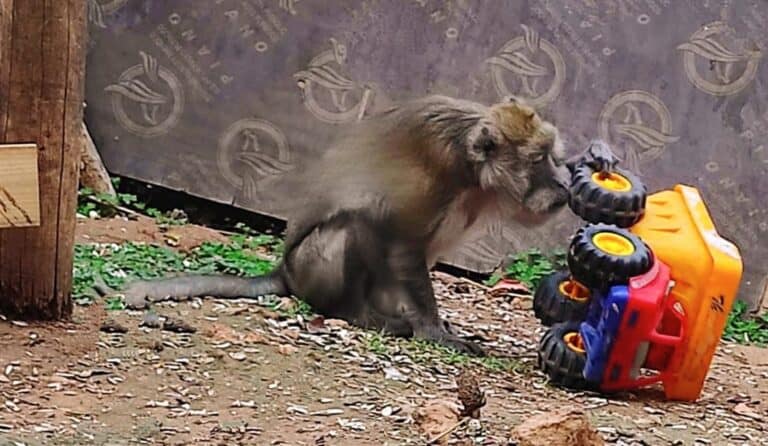
Finally, in 2013, Israel’s Ministry of Environmental Protection outlawed the breeding and sale of animals for research and shut down BFC Farm.
“Together with the Ministry of Environment, from August 2013 to January 2015 we took out 650 of the mothers who had been hunted in nature, and a few males that were there for breeding, and gave them most of the land we have.”
Primates aren’t pets
Fredman says the sanctuary is “quite a geriatric place because we rescue monkeys from places they’ve been held for a long time. If we do manage to rescue a baby, we are very happy because we are saving it from years of being closed up by itself as our other primates were.”
Part of the Israel Primate Sanctuary is open to visitors. This helps offset the high cost of keeping hundreds of monkeys happy and healthy, and gives guides an opportunity to educate people that primates are not pets.
“If you go to Thailand, please don’t take a picture with a baby monkey on your shoulder because the mother was murdered for this,” says Fredman.
The sanctuary now seeks additional funds to build more open enclosures for its many baboons, determined to give their lives a happy ending.
For more information, click here.




